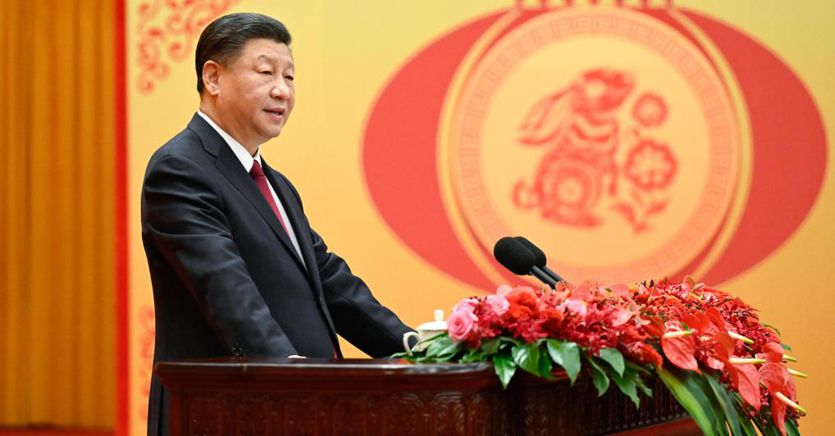The first time I went to Gaza was in 1967. I was a 22-year-old girl living in the small agricultural kibbutz Nir Oz, one and a half kilometers east of the Israeli border with the Strip, and I woke up early in the morning. In the morning to tend the fields, pick apples from the orchard, and work at the day center for the elderly.
Until the Arab-Israeli war broke out that year, Gaza was a place of concern, but we knew little about the people living there. The region, then under Egyptian control, was on the other side of the horizon and represented a threat of Fedayeen raids and fearsome invasion by Arab armies. It has cast its shadow over Nir Oz and other rural communities around us, and is part of an area known as the Gaza Strip.
That summer, Israel's victory over the armies of Egypt, Jordan, and Syria brought Gaza under Israeli control, and the shadow of war no longer cast its shadow over Nir Oz. A short time later, a group of my friends from the kibbutz and I climbed into the tractors and drove across the invisible border to the beautiful beach of Khan Yunis. On the way back, we stopped at Rafah and bought some Arabic bread for the slow journey back. I have happy memories of that day, and over the years that followed, my interactions with the people of Gaza intensified. I met businessmen from Gaza who traded with my brother-in-law in Beersheba and were guests at my home in Nir Oz. I sat next to him in the traffic we encountered on our weekend trip to Tel Aviv. For a while, it was possible to believe that we were meant to live together.
I met businessmen from Gaza and received them as guests in my home. For a while, it was possible to believe that we were meant to live together
In any case, we expected that Gaza would eventually return to the Egyptians in exchange for peace and normalization of relations, but we hoped that relations with the people of Gaza would continue. After the Camp David Accords, which left Gaza under Israeli control, and the failure of the Oslo Accords, which led to the bloodshed of the Second Intifada, our hopes for coexistence faded. When Israel unilaterally withdrew from Gaza in 2005 and closed the border, we became strangers again. With Hamas coming to power, I noticed that the old shadows were slowly returning to the yoke of Oz.
On October 7, masked and armed Hamas men stormed the shelter in my home and kidnapped me, my daughter Keren, and my grandson Ohad. My husband, Abraham, lost consciousness while trying to prevent the men, who kept screaming, from entering the hideout. They took it separately. They are still holding him as a prisoner and his condition is unknown. Hamas also killed my son Roy when he was trying to defend Nir Oz.
Later that day, I returned to Khan Yunis, 56 years after my trip to the beach. For the next 49 days, I spent most of my time confined to a small room on the second floor of the hospital. My jailer, whose name was Muhammad, considered himself a Hamas soldier, but he didn't look like one. I was guarded by a man in civilian clothes who was holding me against my will in a civilian building.
Muhammad's broken Hebrew was a contrast to the fluid Hebrew that the Gazan businessmen had been speaking at my house for some time. I can imagine he was one of their sons and learned from them. I wish Muhammad lived in a world where he could build his own business, live in dignity, and speak fluently and with mutual respect with his Israeli neighbors. In this world, I don't think he would have joined a terrorist group that sent him to care for his kidnapped grandmother who meant him no harm.
Muhammad told me that without Hamas, he would not have had the money or the opportunities. It wasn't quite an apology, it was just an explanation, but the bitter irony is that because of Hamas we no longer have anything.
Muhammad told me that without Hamas, he would not have had the money or the opportunities. The bitter irony is that because of Hamas we no longer have anything
After spending 50 days as a hostage, I left Khan Yunis in a Red Cross car. I was released with my daughter and grandson. I was blindfolded on my way there, but now I could finally see the city, which because of the war had become a mere shell of the place I remembered from that day I went to the beach. The Nair of Oz I returned to is also a ghostly ruin as a result of the October 7 attack. Everything our group built nearly 70 years ago has been destroyed.
I can't say what will happen in the next few years. I don't know if the people of Gaza will choose to focus their efforts on rebuilding Khan Yunis rather than burning Nir Uz. I don't know if young families will ever return to my kibbutz to pick fruit from the trees. I'm just focused on getting my husband home.
What I know is that I will not return to Gaza for a third time. Maybe one day Israelis will make a trip to the beach in Gaza again or host merchants and have coffee with them in their homes. I hope that our two peoples can finally live in peace side by side. I know that if Hamas remains in power, this will never happen.
Copyright The New York Times

“Freelance social media evangelist. Organizer. Certified student. Music maven.”



